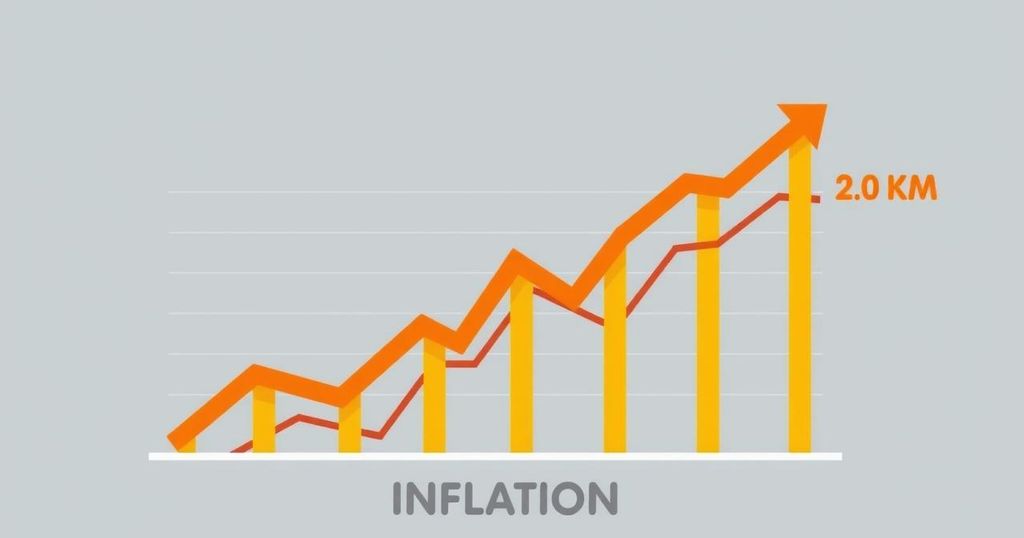Tanzania’s Inflation Increases Due to Rising Food Prices and Fuel Costs

Tanzania’s inflation has risen to 3.2% in February 2025, primarily driven by higher food prices. Key staples such as rice and maize have seen notable increases. Additionally, fuel prices have surged due to global market trends, prompting concerns from the government about unjustified price hikes during Ramadan.
Tanzania has experienced a slight rise in headline inflation, mainly due to increasing food prices. The National Bureau of Statistics (NBS) indicates that the inflation rate increased to 3.2 percent in February 2025, up from 3.1 percent in January. This upward trend reflects acute pressures from the prices of essential food items, contributing to a heightened Consumer Price Index (CPI).
Notable price increases in key staples were reported, with rice climbing by 3.8 percent, finger millet grains by 10.1 percent, and maize grains by 1.8 percent. Other significant rises included sorghum flour (4.0 percent), maize flour (2.6 percent), and fresh beef (0.8 percent). Over the two months, the overall CPI rose by 0.6 percent, underscoring ongoing inflationary pressures.
In addition, various food products have also seen price hikes. Cooking oil increased by 2.4 percent, fruits by 2.6 percent, groundnuts by 4.9 percent, and vegetables by 1.3 percent. Other increments were recorded in potatoes (2.5 percent), sweet potatoes (2.9 percent), dried beans (3.5 percent), dried lentils (2.0 percent), cowpeas (3.7 percent), and cassava flour (1.4 percent). These price rises are partly attributed to increased food demand preceding Ramadan, as consumption patterns notably shift during this period.
Prime Minister Kassim Majaliwa has called upon traders to refrain from imposing unjustified price increases during Ramadan month. Meanwhile, inflationary pressures are also evident in the energy sector due to increased fuel prices. The Energy and Water Utilities Regulatory Authority (Ewura) released new price caps for March, indicating significant increases in the prices of petrol, diesel, and kerosene.
In Dar es Salaam, petrol prices have risen to Tsh2,996 ($1.03) per litre, from Tsh2,820 ($0.97) in February, reflecting a 6.27 percent increase. Diesel prices now stand at Tsh2,885 ($0.99) per litre, up from Tsh2,703 ($0.93), a 6.73 percent rise. Kerosene has seen the steepest increase, now at Tsh3,036 ($1.05) per litre, up from Tsh2,710 ($0.94), marking a 12.02 percent surge.
Ewura’s Director General, James Mwainyekule, noted that these price increases are influenced by global fuel market trends and currency fluctuations.
In summary, Tanzania’s inflation rate has increased slightly to 3.2 percent primarily due to higher food prices, particularly as Ramadan approaches and demand surges. Significant price rises have been noted across staple foods and energy products. The government continues to urge traders to maintain fair pricing during this sensitive period while addressing rising fuel costs influenced by global market conditions. These economic factors underscore the complexities faced by the Tanzanian economy.
Original Source: www.zawya.com








